Visitor centre opens at Cromford Mills factory site
- Published
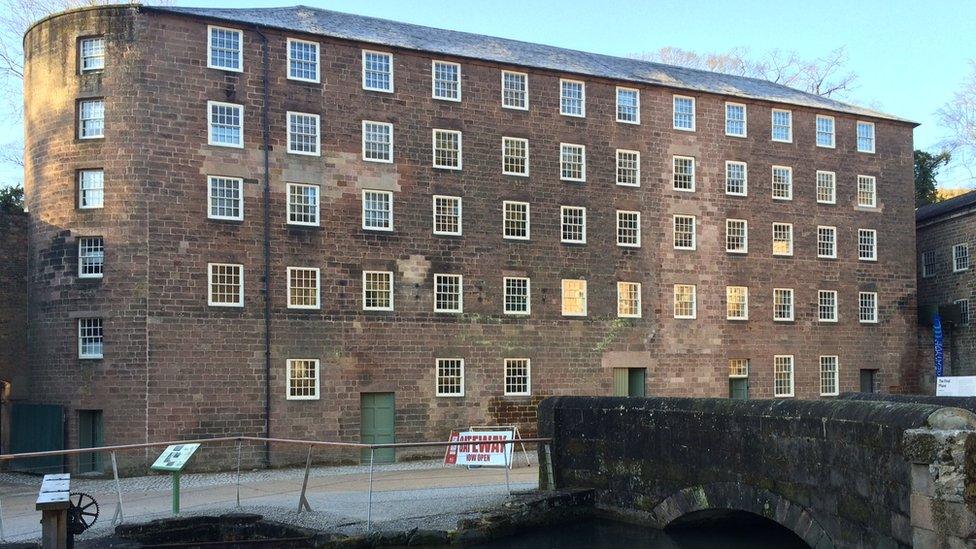
The Derwent Valley visitor centre at the historic Cromford Mills took 20 years to clean, so bad was the contamination at the site
A visitor centre has opened at an 18th Century mill regarded as one of the key sites in the industrial revolution.
Cromford Mills in Derbyshire was the world's first successful water-powered cotton spinning mill.
The site - developed in 1771 by the "father of the factory system" Sir Richard Arkwright - underwent two decades of renovation.
The £5m centre was due to be opened by actor Brian Blessed, but he did not attend after getting stuck in traffic.
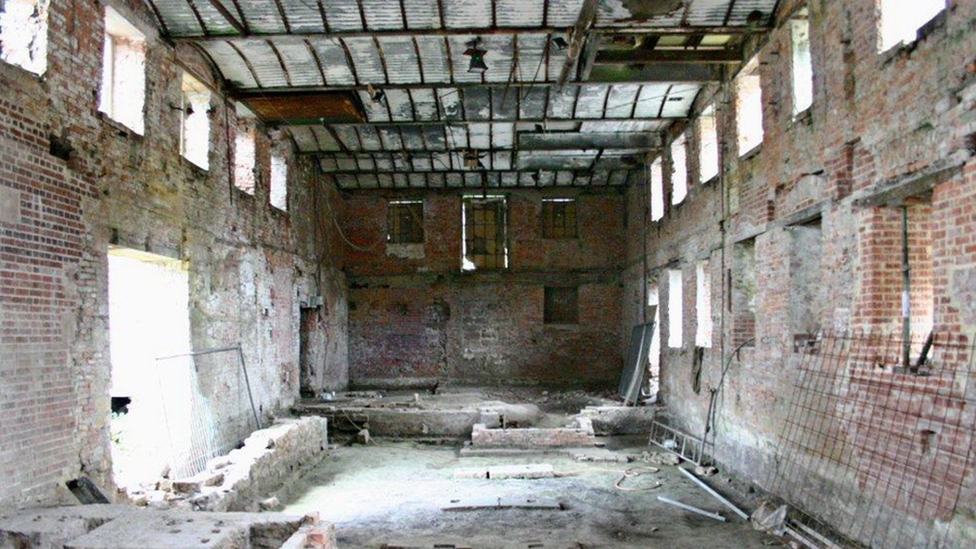
Problems with water supply in 1840 restricted textile production from the site and eventually the buildings were put to other uses
The centre - a former paintworks in the 1920s - will help visitors find out what there is to see and do at 17 designated sites within the Derwent Valley Mills World Heritage Site.
Work to clean the 15-mile, Grade-I listed site took 20 years after remnants of paint residue and chemicals such as arsenic, cyanide and lead chromate were found in the roof beams and stonework.
Adrian Farmer, heritage coordinator for the Derwent Valley Mills World Heritage Site, argued the area was the "birthplace of the industrial revolution".
"It is here at Cromford where Arkwright for the first time developed mass production of anything anywhere in the world," he said.
"Without the factory system, there wouldn't have been the kind of industrialisation that took the globe by storm."
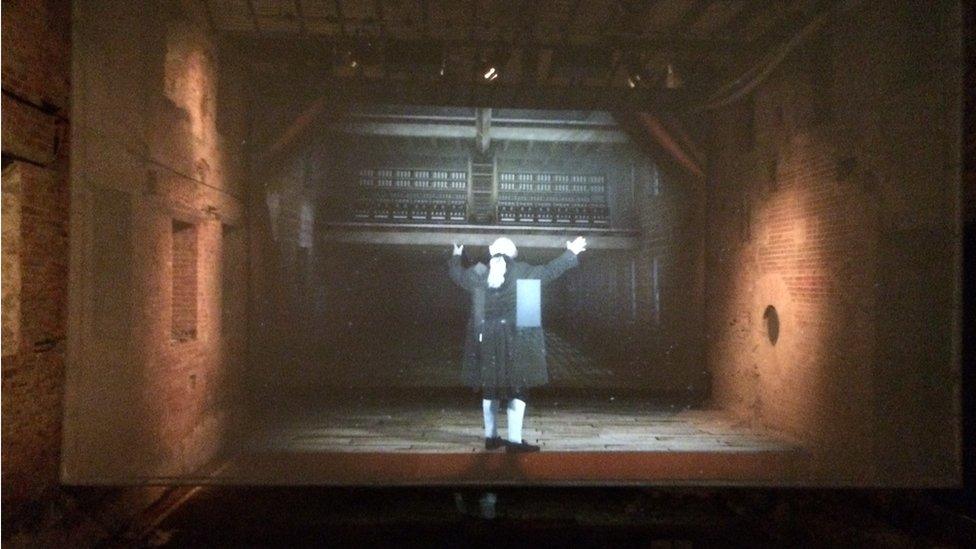
Sir Richard Arkwright was recognised as one of the founders of the industrial revolution
Sarah McLeod, chief executive at Cromford Mills, said the mill would be a "complete day out" for visitors.
"It's so exciting to see a building which is a major part of the world heritage site brought back to life," she added.
The area now includes audio-visual displays, exhibitions, information about the history of cotton mills and CGI technology which brings Sir Richard to life.

Cromford Mills produced the world's first water-powered cotton spinning mill, developed in 1771 by Sir Richard Arkwright
Sir Richard's mill allowed yarn to be mass produced and provided the template for water-powered textile factories across the world.
UNESCO declared the Cromford Mill and other mills in the Derwent Valley a World Heritage Site in 2001.

Sir Richard Arkwright
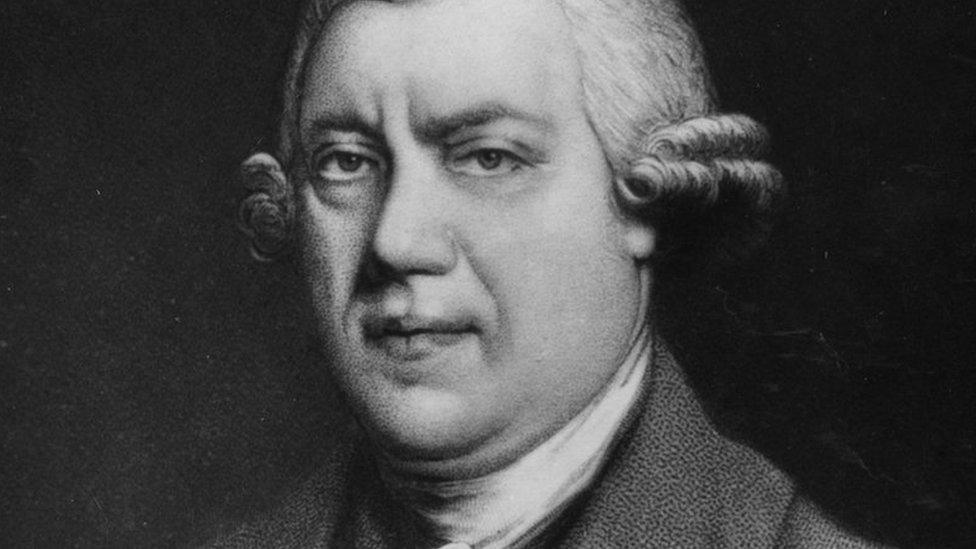
Arkwright was born in Preston in 1732. He was the youngest of 13 children
He was recognised as one of the founders of the industrial revolution
His factory employees worked 13-hour days from 6am to 7pm and the workforce included children as young as six
From 1775, a series of court cases challenged Arkwright's patents as copies of others and they are eventually revoked in 1785
Despite that he was knighted a year later, six years before his death
Source: BBC History

- Published28 January 2016
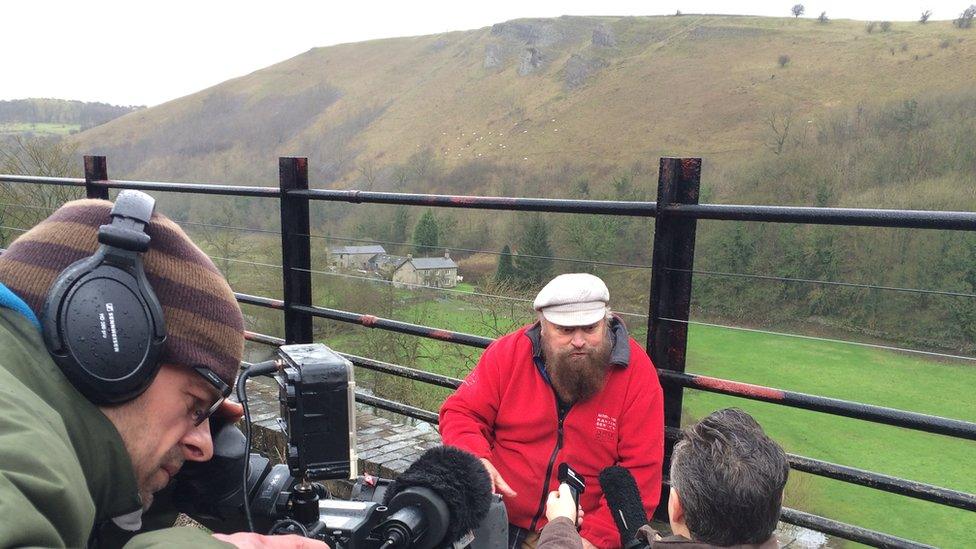
- Published7 June 2014
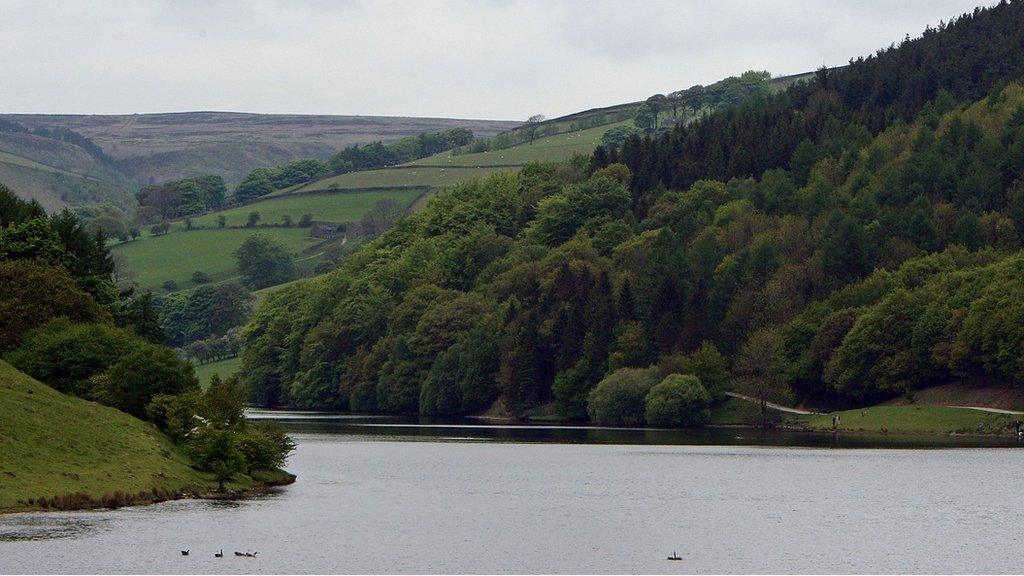
- Published27 September 2010